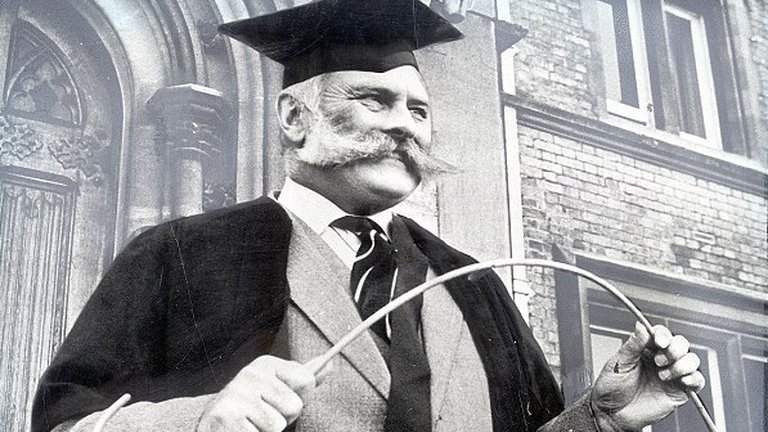When I was at school in England, the law of the time dictated that everybody had to have compulsory education to a certain age. With exceptions for home-schooling and birthdays early in the academic year, this meant, de facto, everybody had to stay at school until the end of the academic year when they turned 16.
Full-time education is now compulsory for all children aged 5 to 18 in the U.K. and ‘school’ there generally refers to this period, not any further or higher education usually referred to as college or university.
I went to a primary school, a middle school and started high school aged 13, in 1980, joining the third form. A former grammar school, the first and second forms had been subsumed into the middle school.
By the time I started primary school aged 4 years and 10 days, in 1971, I was already reading, as my mother had taught us at home, and my father, a computer programmer, had taught us all basic maths.
The only things of any real, lasting, practical use I learned at school were a further development of this basic literacy and numeracy.
The external exams taken at 16, either O-Levels or CSEs, were predominantly exam-based. There was little to no coursework- or project-based assessment, and no cross-curricular activity, as each subject was taught and tested separately. Scoring employed negative marking, with marks deducted for incorrect answers or poor spelling, grammar or handwriting.
CSEs were considered of lower academic value than O-Levels. On average, 36% of entrants took O-Levels, the remaining 64% CSEs.
Given the exam-based approach and lack of course work, if you gamed the system, you could lark around all year, just about staying out of trouble, then cram enough last minute from past papers to get through the tests. This is exactly what I did.
My memories of primary school are vague. Middle school was awful. An energetic boy, there against my will, forced to sit still and ‘behave’, I was occasionally sent out to run around the school field to burn off energy. I did this gleefully and quickly and would be applauded back in by my classmates.
At least middle school had poetry, music and drama classes once a week, and lots of sports.
On arriving at high school, I couldn’t believe drama wasn’t on the timetable. Music lessons consisted of history and theory, while the extensive collection of musical instruments lay unused, locked in the cupboard. We weren’t allowed to touch them.
And we had to play rugby.
I endured another five years of mental torture before I was finally free.
I hated school. We were forced to sit still, complete mundane and meaningless tasks, and negative reinforcement ruled.
Sir Ken Robinson talks about people taking years to recover from their schooling. Sugata Mitra compares compulsory, institutional education to a necessary function of an imperial machine.
There were certainly some interesting exceptions. I enjoyed Latin (though I dropped French soon as I could), and bits of history were fascinating.
In Applied Science and Technology, we got to choose and build a project for inclusion in the O-Level assessment, which was the only subject where the curriculum was written by the school and externally audited. I built a wind-powered generator from an old car alternator. This was in 1983.
These exceptions aside, for the majority of the time I was utterly unengaged and far from being inspiring, most of the teachers were dullards, going through the motions.
This was a time when, due to employment laws, it was practically impossible to sack teachers.
Yet I was supposedly one of the bright ones who benefited from an elitist, pyramid system. I was in top sets all the way through, in a Latin set, which was reserved for 4 of 10 forms per year; I did my maths O-Level aged 14 (likely my crowning academic achievement), the norm being 16, and finished my legally-required education with 11 O-Levels. Given the elitist 36/64 split between O-Levels and CSEs and the norm-referenced basis, pre-determined pass rate of 50%, assuming 5,000,000 pupils took 7 O-Levels or CSEs (there were 5,070,481 equivalent candidates in 2019) the national average would be have been approximately 1.26 O-Levels per student per year. That, more than anything this blog could state, is surely damning enough evidence of its point.
Aside from numeracy and literacy, there was very little I learned that I use in my day-to-day life now, let alone in my business.
If the idea was to inculcate us with enquiring minds, my only enquiry was: What on earth am I here for?
I couldn’t see the point of jumping through meaningless hoops that promised only entry into further education, which I was told would help me get a good job.
A job? I shuddered at the very thought.
I couldn’t wait to get out of the place, and I don’t think it was sad to see the back of me.
Business.com lists 12 skills to master for business: delegation, communication, negotiation, strategic planning, leadership, team building, analytical skills, sales and marketing, general management, cash flow management, financial management and time management.
Entrepreneur.com lists the following traits as necessary for entrepreneurs: passion, self-motivation, optimism, creativity, risk-taking, bravery, transparency, enthusiasm and accountability.
There is nothing in either of those lists about reciting the reactivity series from memory, calculating displacement given initial velocity, acceleration and time elapsed, nor conjugating the Latin verb amare (to love), all of which I can still do.
In following blogs we’ll look at the few exceptions, other ways to acquire skills for business and how things have changed.
We now offer a consultancy service with a no-obligation first contact.
If you would like help systemising your business or anything else, please get in touch.

